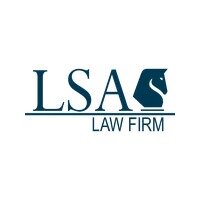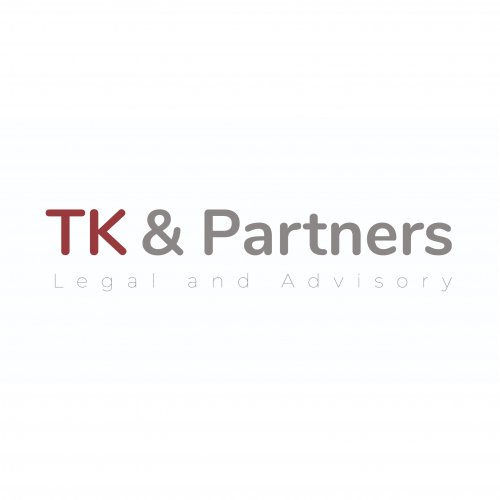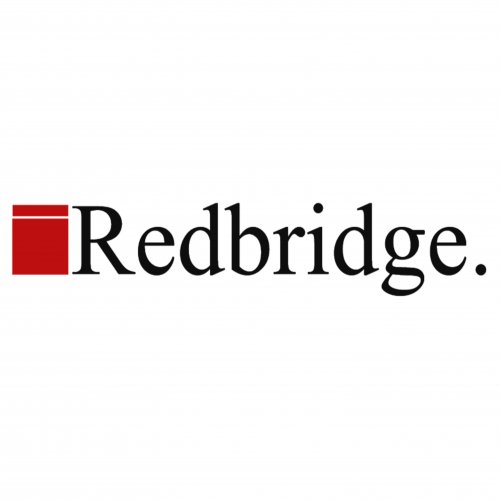Best Data Center & Digital Infrastructure Lawyers in Yerevan
Share your needs with us, get contacted by law firms.
Free. Takes 2 min.
List of the best lawyers in Yerevan, Armenia
About Data Center & Digital Infrastructure Law in Yerevan, Armenia
Data Center and Digital Infrastructure law in Yerevan, Armenia encompasses a range of legal issues that govern the design, construction, operation, and maintenance of data centers as well as other digital infrastructure facilities. As the technology sector in Armenia rapidly develops, Yerevan has become a hub for IT businesses, startups, and service providers who rely heavily on secure, efficient, and lawfully operated digital infrastructure. This area of law includes aspects related to data protection, privacy, telecommunications, zoning, contracts, environmental considerations, and compliance with both local and international standards. Ensuring legal conformity is vital not only for the smooth operation of these facilities but also for protecting business interests and client data.
Why You May Need a Lawyer
Individuals or businesses engaging in data center operations or digital infrastructure projects may face complex legal issues where the assistance of a lawyer is crucial. Legal counsel is often required in the following situations:
- Drafting, negotiating, or reviewing contracts for data center services, colocation, or IT support
- Dealing with regulatory compliance involving data protection, privacy, and cybersecurity laws
- Navigating permits, licenses, and zoning requirements mandated by local authorities
- Assessing the legal risks of cross-border data transfers or cloud services hosting
- Responding to government inquiries, audits, or investigations regarding digital infrastructure practices
- Handling disputes related to intellectual property, leasing, maintenance agreements, or service outages
- Advising on mergers, acquisitions, or investments with a digital infrastructure component
- Managing requirements for critical infrastructure such as emergency power, cooling, or network security
Legal expertise ensures your data center operates lawfully and efficiently, reducing risks of penalties, litigation, and reputational damage.
Local Laws Overview
Several legal frameworks in Armenia directly impact data center and digital infrastructure activities in Yerevan. The most relevant local laws and regulations include:
- Data Protection and Privacy: Armenia has adopted comprehensive data protection laws, including the Law on Personal Data Protection. Operators must secure customer data and follow strict rules about data processing and storage.
- Telecommunications Regulation: The sector is regulated by the Public Services Regulatory Commission (PSRC) which issues licenses for telecommunication activities, including internet services used by data centers.
- Intellectual Property (IP): Copyrights, patents, and software rights must be respected in IT infrastructure projects. Unauthorized use of software or technology is subject to legal action.
- Zoning and Construction: Data centers must adhere to zoning laws, obtain building permits, and comply with construction regulations set by Yerevan city authorities.
- Environmental Compliance: Projects may require environmental permits, especially for large-scale facilities with significant energy consumption or cooling systems.
- Civil and Commercial Law: Contracts and agreements must comply with Armenia’s Civil Code, including terms on liability, data security, maintenance, and service levels.
- Cybersecurity: There are legal requirements to prevent, detect, and report cybersecurity incidents, especially concerning critical infrastructure sectors.
Staying compliant with these local laws is essential for risk management and operational continuity.
Frequently Asked Questions
What licenses are required to operate a data center in Yerevan?
Operating a data center generally requires a business registration, telecommunications-related licenses if offering network services, and adherence to zoning and construction permits as needed.
Are there data localization laws in Armenia?
Armenia does not mandate strict data localization, but sensitive data and personal information must be processed and stored under the Law on Personal Data Protection, which may require certain safeguards or notifications when data is transferred abroad.
Do I need to comply with international standards in Armenia?
While not always mandatory, compliance with international standards such as ISO 27001 for information security is highly recommended, especially for companies with international clients or partnerships.
How does Armenia regulate cloud services?
Cloud service providers are subject to laws on data protection and telecommunications. Companies using cloud storage should ensure providers comply with Armenian data privacy standards.
What are the penalties for non-compliance with data protection laws?
Penalties for non-compliance range from administrative fines to criminal liability in severe cases, including unauthorized disclosure or misuse of personal data.
Can foreign companies build or operate data centers in Yerevan?
Yes, foreign investments are welcomed and foreign companies can build or operate data centers, subject to standard business registration, regulatory clearances, and compliance requirements.
What steps should I take to protect intellectual property in my digital infrastructure?
Secure all necessary IP registrations, use licensed software, include IP clauses in all contracts, and monitor for infringement through regular audits and legal support.
Are there specific cybersecurity regulations for data centers?
Yes, regulations require implementation of technical and organizational measures to safeguard networks and data. Critical infrastructure operators may have enhanced obligations.
How are disputes involving data center contracts resolved in Armenia?
Most disputes can be resolved through Armenian courts or alternative dispute resolution methods like arbitration or mediation, as specified in contracts.
Can I transfer customer data to servers located outside Armenia?
Transfers are allowed if the country of destination guarantees adequate protection and the data subject has granted consent, as per the Law on Personal Data Protection.
Additional Resources
If you need more information or guidance, the following resources and organizations can be helpful:
- Public Services Regulatory Commission of Armenia - regulates telecommunications and IT infrastructure
- Ministry of High-Tech Industry of the Republic of Armenia - offers guidance on IT sector development
- Personal Data Protection Agency of Armenia - responsible for enforcing data protection laws
- Ministry of Territorial Administration and Infrastructure - manages construction and urban planning
- Armenian Bar Association - directory of legal experts including IT law specialists
- Local IT industry associations and chambers of commerce provide sector-specific support and networking
Next Steps
If you require legal assistance related to data center and digital infrastructure matters in Yerevan, Armenia:
- Consult a lawyer experienced in IT or digital infrastructure law for a detailed case assessment
- Prepare relevant documents such as operating licenses, contracts, and correspondence with authorities
- Clarify your legal objectives and any compliance issues you face
- Contact appropriate governmental agencies for regulatory questions or permit applications
- If you require ongoing support, consider engaging legal counsel on a retainer for continuous assistance
A knowledgeable local lawyer can help navigate Armenia’s legal landscape, ensure compliance, and safeguard your investments in the rapidly growing digital infrastructure sector.
Lawzana helps you find the best lawyers and law firms in Yerevan through a curated and pre-screened list of qualified legal professionals. Our platform offers rankings and detailed profiles of attorneys and law firms, allowing you to compare based on practice areas, including Data Center & Digital Infrastructure, experience, and client feedback.
Each profile includes a description of the firm's areas of practice, client reviews, team members and partners, year of establishment, spoken languages, office locations, contact information, social media presence, and any published articles or resources. Most firms on our platform speak English and are experienced in both local and international legal matters.
Get a quote from top-rated law firms in Yerevan, Armenia — quickly, securely, and without unnecessary hassle.
Disclaimer:
The information provided on this page is for general informational purposes only and does not constitute legal advice. While we strive to ensure the accuracy and relevance of the content, legal information may change over time, and interpretations of the law can vary. You should always consult with a qualified legal professional for advice specific to your situation.
We disclaim all liability for actions taken or not taken based on the content of this page. If you believe any information is incorrect or outdated, please contact us, and we will review and update it where appropriate.












